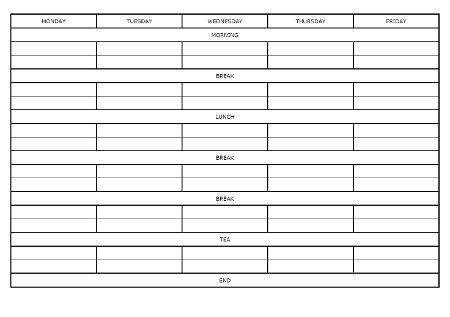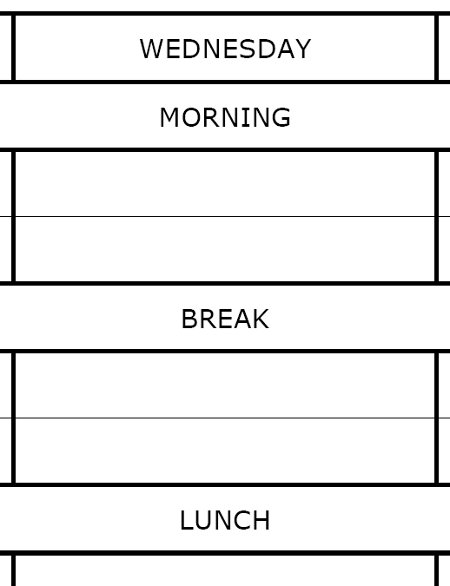If you’re interested in this post, you might also be interested in my post about
exam technique in physics.

There’s a running joke amongst teachers about the pupil who spends so much time preparing a revision timetable that they never actually do any revision. Like all good comedy, it’s at least partially based in fact. It’s very easy to allow something – anything – to distract you from your revision.
But this isn’t going to be a problem for you. I’ve made a revision timetable for you.
The timetable has six 1-hour blocks of revision per day. Each 1-hour block is broken into two 25-minute revision sessions separated by a ten minute break. This ten minute break allows you to cool off, and gives you some room to manoeuvre if you’re coming to the end of a topic and you don’t want to run into the next session.
There are five breaks splitting up the six sessions: two 1-hour breaks (for lunch and tea) and three 30-minute breaks.
Let’s take Wednesday as an example:

I suggest you start in the morning at 1000 so Session 1 runs from 1000-1025, followed by a ten minute break, then Session 2 from 1035-1100. Session 3 starts after a half-hour break at 1130 and runs ’til 1155, then Session 4 from 1205-1230. Session 5 begins (after a one-hour lunch break) at 1330. The day runs like this until 1930, at which time all revision should stop until the next day.
There are two versions of the revision timetable template to download. One is completely blank and the other has the suggested timing of each session printed on (in light-grey ink so that you can write over it). I suggest you download both.
Download blank revision timetable (.PDF, 10.9kB)
Download revision timetable with sample timings (.PDF, 13.9kB)
What to do with your timetable:
- Distribute sessions appropriately. The template I’ve provided has sixty sessions per week – don’t spend thirty of those sessions on one subject at the expense of another. Likewise, don’t spend too much revision time on a subject you feel confident in.
- Create variety within the day, but not too much. You shouldn’t be doing more than four or five different subjects in any one day. Perhaps alternate two subjects in the first half of the day, and a different two subjects in the second half.
- Once it’s finished, it’s finished. Spending too much time “improving” or “refining” your revision timetable is just as bad as wasting time making it in the first place.
What not to do with your timetable:
- Colour-coding is a waste of time. Do you really think you’ll revise physics better if you write it in green?